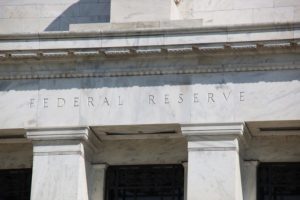Brexit and the Derivatives Time Bomb
Brexit could trigger a $500 trillion derivatives meltdown by forcing the European Union to allow insolvent member governments and banks to write down debt. But there's an alternative. CHRIS DRUMM / CC-BY-2.0
1
2
CHRIS DRUMM / CC-BY-2.0
1
2
A government oppressed by “sovereign” debt is not really sovereign. A sovereign government has the power to issue money and need not go into debt at all. But EU member governments have lost that sovereign power. They are unable to issue their own money or borrow money issued by their own central banks. If they leave the EU, they can get that power back for future expenditures; but their existing debt is in euros, and only the ECB has the power to convert bonds into euros.
In fact that is what it does when it buys government bonds with QE. The problem with QE as currently practiced is that the bonds remain on the central bank’s books, “sterilizing” their effect on the market. The idea is to be able to sell them back into the market should inflation become a problem. But that means the bonds are still counted as debt for purposes of balancing national budgets, forcing continued austerity, cutbacks and privatization. If the bonds were bought back and voided out, national governments would be free to spend again. QE doesn’t need to be unwound by selling bonds into the market. If the money supply grows too large, money can be pulled back with taxes, interest or fees.
The invariable objection to paying off the debt with central bank-issued money is that it would lead to hyperinflation. But would it? Government bonds are already classified as “near money” – so liquid that they are readily exchangeable for cash. Turning them into cash is little different from moving money from your savings account to your checking account. One draws interest and the other doesn’t, but cashing out the savings account doesn’t make you any richer than before. It doesn’t propel you to spend more on goods and services, driving consumer prices up.
If people and governments were incentivized to spend more, however, that would actually be a good thing. Consumer markets need more demand today. The way to stimulate economies is to get money into the pockets of people who will spend it. Demand (money) stimulates supply (productivity). Before QE can stimulate the real economy, it has to make it into the real economy. If the goal of the EU is to hold itself together and avoid a derivatives meltdown, some QE that actually got into the hands of the people could be just the ticket.
——
Ellen Brown is an attorney, Founder of the Public Banking Institute, and author of twelve books, including the best-selling Web of Debt. Her latest book, The Public Bank Solution, explores successful public banking models historically and globally. Her 300+ blog articles are at EllenBrown.com. She can be heard biweekly on “It’s Our Money with Ellen Brown” on PRN.FM.
Your support matters…
SUPPORT TRUTHDIG
Independent journalism is under threat and overshadowed by heavily funded mainstream media.
You can help level the playing field. Become a member.
Your tax-deductible contribution keeps us digging beneath the headlines to give you thought-provoking, investigative reporting and analysis that unearths what's really happening- without compromise.
Give today to support our courageous, independent journalists.






You need to be a supporter to comment.
There are currently no responses to this article.
Be the first to respond.